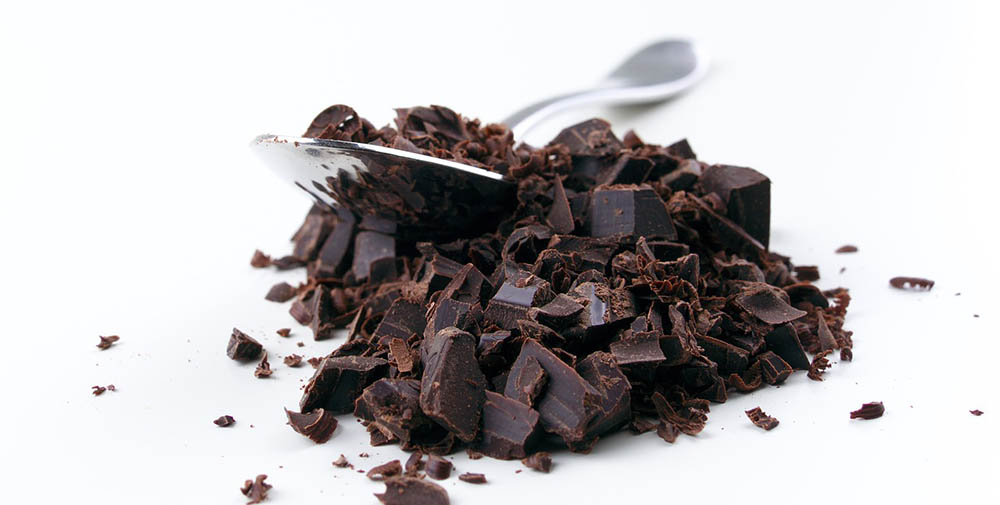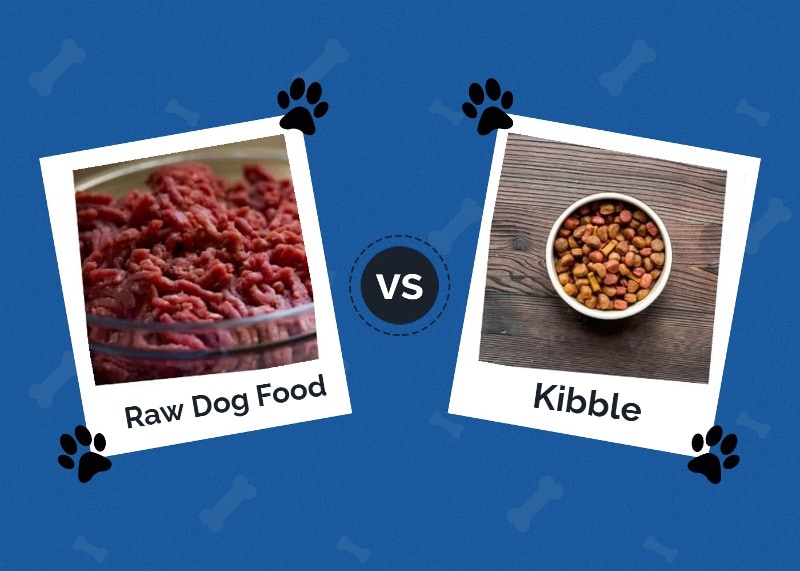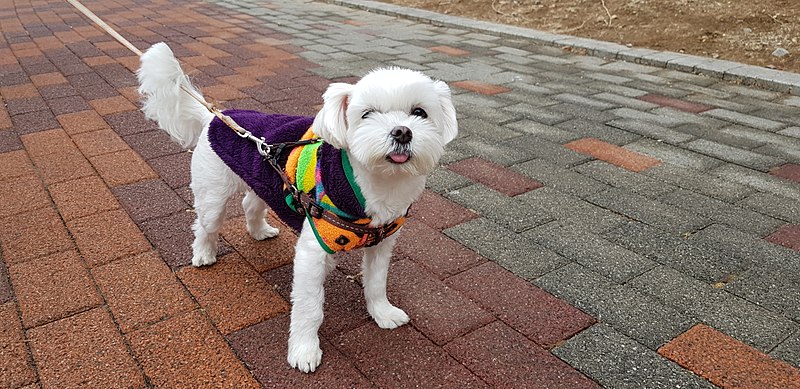My Dog Keeps Licking His Lips and Swallowing: 10 Likely Causes
Updated on
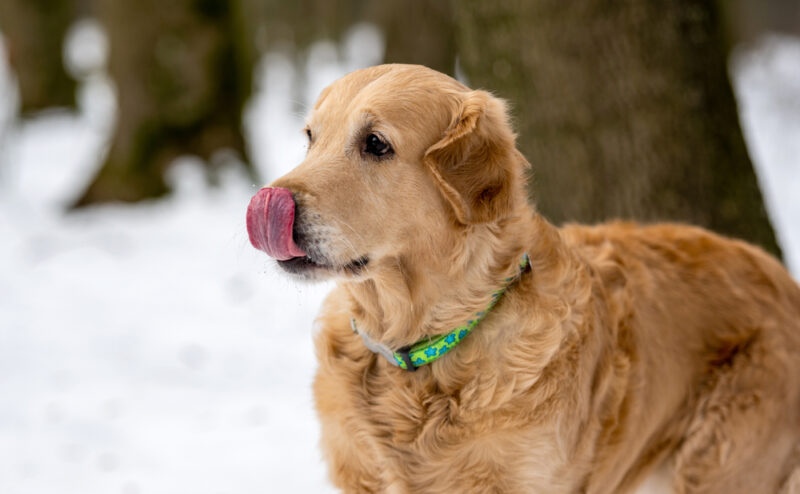
So, your dog keeps licking his lips and swallowing. Should you be concerned? Maybe, maybe not. Dogs lick their lips and swallow for many reasons, and some of the time the reasons should be of no worry. However, that’s sometimes not the case, so we’re sharing with you 10 likely causes of this behavior and whether you should take your dog to the vet.
The 10 Likely Causes Why Dogs Lick Their Lips and Swallow
1. Nausea and Vomiting
Licking the lips and swallowing are classic signs of nausea. In some cases, your dog may pace back and forth and pant. Then, your dog’s posture droops and the inevitable retching begins.
Vomiting isn’t necessarily a bad thing—it’s the body’s natural response to expel something from the stomach that shouldn’t be there. It’s a vague sign, so it’s often hard to determine what causes it without further testing. If your dog vomits multiple times, has diarrhea, and/or has other signs, it’s time to go to the vet.
2. Hunger
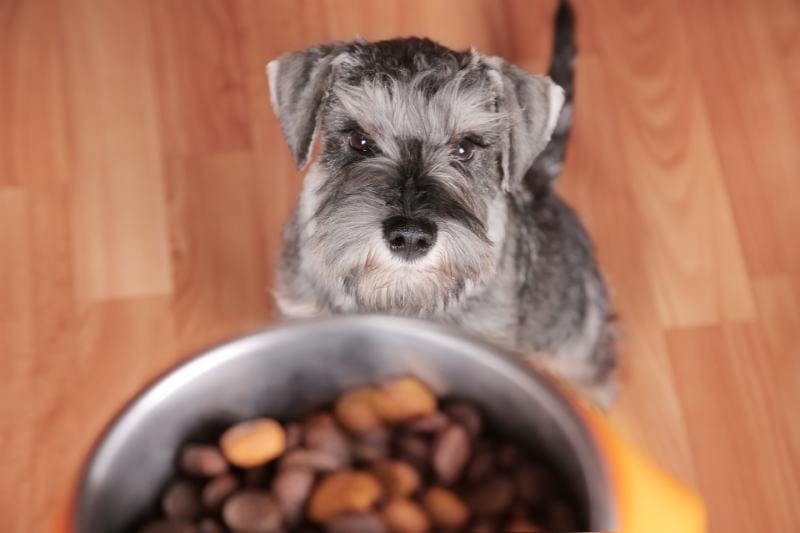
We condition our dogs to know when it’s time for food based on their routines. For instance, if your dog is typically fed at 4 PM, then they may start licking his lips and swallowing as the time draws near in anticipation of food.
3. Comfort
Have you ever noticed that your dog licks his lips when you gently pet his head? This is a natural response to a comforting action and serves as a way to self-soothe. It may also be a sign of your dog feeling content and at ease.
4. Stress and Anxiety
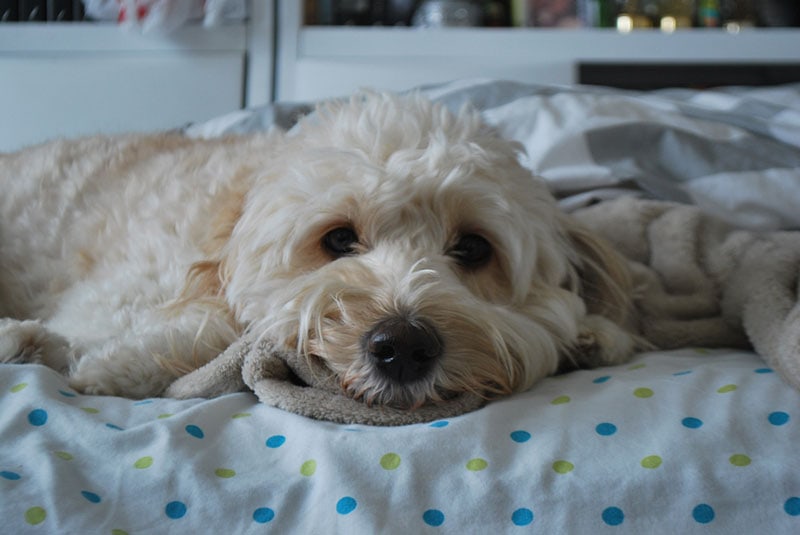
On the flip side, in uncertain situations, dogs may drool excessively because of stress and anxiety. This, in turn, may cause them to lick their lips and swallow just as much.
- Pant
- Urinate and defecate in the house
- Appear lethargic
- Show destructive behavior
- Bark excessively
- Partake in obsessive-compulsive behaviors
Dogs suffer from different types of anxiety, with the most common being fear, separation, and age-related anxiety. If you notice these signs paired with your dog’s licking and swallowing, talk to your veterinarian or a behaviorist to better understand and treat your dog’s anxiety and stress.
5. Oral Discomfort
Tooth abscesses, broken teeth, gingivitis, and anything stuck in the mouth may trigger your dog’s salivary glands, causing excessive licking and swallowing.
Routine dental cleanings, dental checkups, and at-home dental care can help prevent oral discomfort. If you suspect your dog’s experiencing oral discomfort, talk to your veterinarian to take a peek inside your dog’s mouth.
6. An Issue With Their Lips
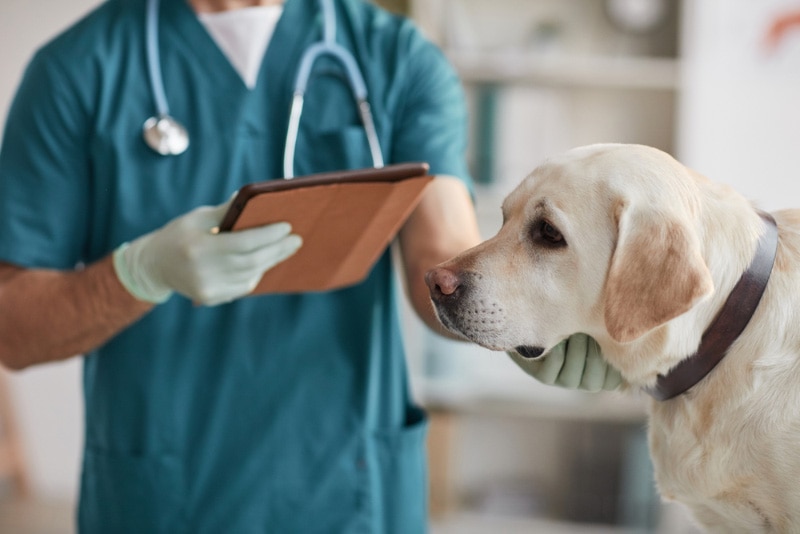
This may include something sticky on their lips or swelling or pain from an injury or sting. Whichever the cause, a dog may lick and swallow excessively while trying to sort out what is going on with their lips and mouth. You will more than likely see the issue on close examination of the lips and may be able to help your dog out or see your vet.
7. A Bad Taste
Dogs may eat everything, but that doesn’t mean that some things don’t taste bad to them. A bad taste in their mouth from a food, medication, or something they shouldn’t be eating can cause lip licking and swallowing as they try to get the taste out of their mouth.
8. Heat Stroke and Dehydration
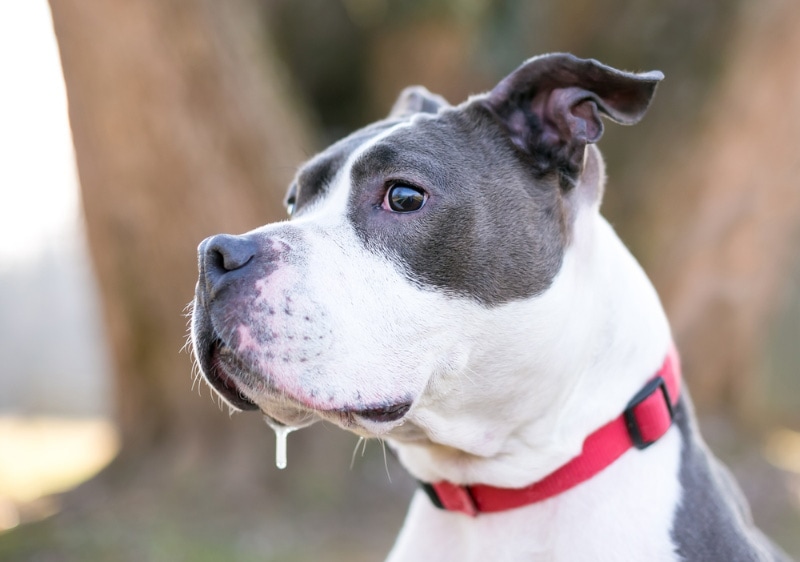
Drooling may be an early sign of heat stroke and dehydration. Dehydration is more than feeling thirsty; it’s the body signaling that it’s in desperate need of water. Without water and proper shade, the body can’t properly cool, and dogs can suffer from heat stroke.
- Drooling
- Excessive panting
- Bright red gums
- Fast heart rate
- Lethargy
Short-nosed dogs, like Bulldogs, Pugs, and Boxers are more susceptible to heat stroke, so these dogs must have limited time outside in the hot sun. If you believe your dog is suffering from heat stroke, take them to the vet immediately.
9. Infection and Disease
Several infections and diseases, such as kidney disease, liver disease, rabies, bloat, sinusitis, and many, many more all share one commonality: drooling. Drooling can be a typical dog behavior and shouldn’t be a concern unless it’s in excess or your dog shows signs, like:
- Vomiting
- Diarrhea
- Lethargy
- Inappetence
- Fever
- Unexplained weight loss
- Pawing at the mouth
- Bleeding
- Uneven pupils
- Restlessness
- Abdominal distension
- Dizziness
- Any other changes in normal behavior
Another concern would be if your dog’s saliva consistency has changed or is showing discoloration. All of these are signs that your dog should be seen right away.
10. Typical Drooling
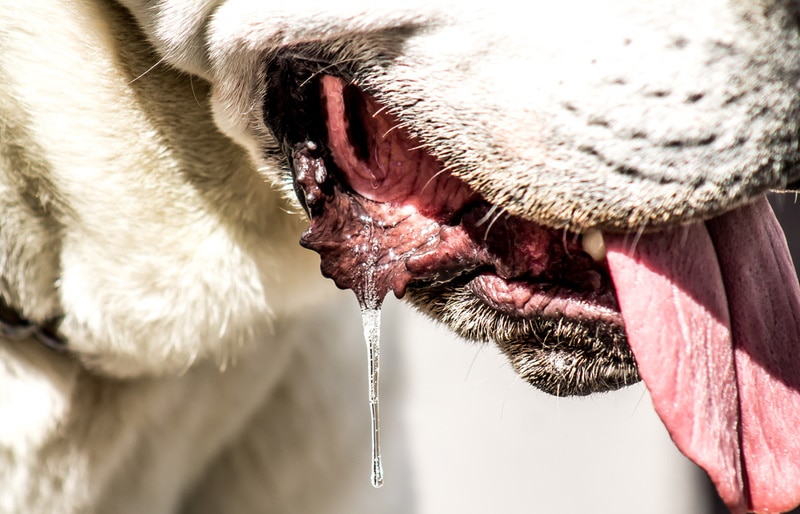
Let’s face it: Some breeds are more drooly than others. A lot of these dogs have loose folds or larger upper lips, allowing the drool to seep out of the mouth. We appreciate their efforts to lick and swallow the excess.
Conclusion
Licking and swallowing is typical dog behavior, but it doesn’t mean the behavior goes without meaning. Most of the time, when dogs lick and swallow, they’re nervous, expecting food, or have tummy aches. Sometimes the reasons are much greater, though, so keep your eyes peeled for additional signs.
Featured Image Credit: Tatyana Vyc, Shutterstock


